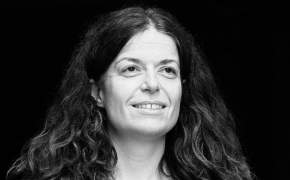Subsidies were or are granted for reuse activities such as washable diapers, reusable dishes and the repair of electric and electronic household appliances.
• In 1995 a subsidy scheme for reusable (washable) diapers was introduced. The purchase of one package is currently funded by the regional government of Styria with € 40,-, co-funding by the waste association or the municipality is a prerequisite. Per child a total amount of 1,000 kg of waste can be prevented by using reusable diapers only
• In 2001 the funding scheme “G´scheit Feiern“ for zero waste festivals was introduced. Since then regional festivals which comply with the very strict subsidy specifications (only reusable dishes, cutlery, packaging, and tablecloths shall be used; only regional food products shall be offered; products from organic farming increase the subsidy amount; sustainable transport to the festival shall be promoted) can be funded by the regional government of Styria.
• "Repair Bonus 2019": During the five-months pilot project “Reparaturprämie Steiermark”, repairs of household electric and electronic appliances were subsidized with 50 % of the repair costs (but max. € 100 per household and year). During this project ca. 1.300 repairs were subsidized, and the number of registered repair shops for such appliances at the online guide for repair shops doubled to ca. 500.
Resources needed
Financial resources and working hours for funding handling and controlling. For diapers and festival subsidies, a system has been established, where the subsidy handling is mostly executed by the waste management associations. The newly set up repair subsidy was rather labour intensive.
Evidence of success
Subsidies for reuse activities have two types of effects, a direct one through the financial contribution and an indirect one through awareness-raising (longer campaigns can be presented effectively to the general public). Cases of subsidy: 400 diapers/a, 200 festivals/a, 1,300 funded repairs/5 months. High media presence achieved for the repair subsidy. Also, the number of registered repair shops for electric/electronic appliances at the online guide for repair shops doubled to ca. 500.
Difficulties encountered
Limited financial resources. High workload.
Potential for learning or transfer
The potential is high. Subsidy schemes can easily be transferred into other regions. In Austria, several regions currently provide subsidies for festivals or repair activities. We also received enquiries from abroad. Key learnings: 1. the methods of implementation: The longstanding diapers and "G´scheit Feiern" subsidies are accompanied by a network of regional advisors, who support the subsidy handling, give advise for zero-waste festivals and other waste/environment related topics and, by doing so, contribute to awareness raising. The repair subsidy was processed centrally - due to the large number of applications this was only possible using a web form set up for this purpose. 2.the achievable number of subsidies and the effects triggered by them, which are besides the positive environmental and awareness-raising effects e.g.: 70% of repairs that would not have been carried out without subsidy, economic success for repair shops with a total repair cost of almost € 250,000.
Please login to see the expert opinion of this good practice.
Tags: Circular economy, Funding, SME








